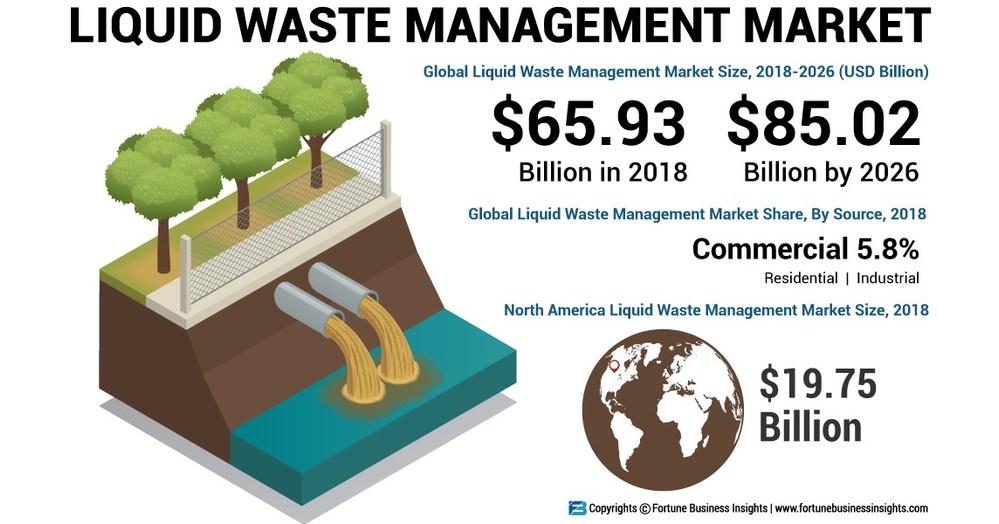What Does Reclaim Waste Mean?
What Does Reclaim Waste Mean?
Blog Article
Getting My Reclaim Waste To Work
Table of ContentsReclaim Waste Things To Know Before You Get ThisThe Facts About Reclaim Waste UncoveredHow Reclaim Waste can Save You Time, Stress, and Money.Reclaim Waste Things To Know Before You Get ThisSome Known Facts About Reclaim Waste.
Check out the types, events, and forms of liquid waste. Residential sewer waste refers to the waste and items from a domestic sewage-disposal tank. This kind of waste is produced by human beings in houses, institutions, and other buildings. This only includes septic systems that have a drainpipe area. The appropriate management and disposal of domestic sewage waste need liquid waste to be moved to a sewage treatment plant where the appropriate approaches and tools are put on purify and take care of waste.
Commercial waste commonly includes potential threats, such as flammable materials or a blend of liquid and solid waste items, and calls for a much more innovative and detailed disposal procedure. The disposal of business waste commonly involves the filtering of waste before transportation to make sure safe and appropriate disposal. Industrial waste is developed from byproducts and runoff of commercial processes and manufacturing.
This sort of waste can not make use of the same sewage administration transport or processes as septic or business liquids. The hazardous waste management process calls for the assessment and testing of fluid waste prior to it undergoes the disposal procedure (liquid waste disposal melbourne). Drainage waste is the liquid waste that comes from overflow and excess stormwater in highly inhabited areas or cities
Runoff waste can cause contamination and flooding if not managed correctly. Ensuring proper waste management can avoid disasters and minimize ecological harm.
Not known Incorrect Statements About Reclaim Waste
Contact PROS Providers today to learn more about our waste administration and disposal services and the proper ways to take care of the liquid waste you create.
(https://reclaimwaste1.bandcamp.com/album/reclaim-waste)This supposed 'wastewater' is not just a vital resource but, after treatment, will be released to our land, rivers or the sea. Made use of water from toilets, showers, bathrooms, kitchen sinks, washings and commercial procedures is known as wastewater.

water used to cool machinery or tidy plant and devices). Stormwater, a kind of wastewater, is runoff that streams from agricultural and metropolitan areas such as roof coverings, parks, yards, roadways, paths and rain gutters right into stormwater drains, after rainfall. Stormwater moves untreated straight to regional creeks or rivers, ultimately getting to the ocean.
Some Of Reclaim Waste
In Queensland, most wastewater is treated at sewer therapy plants. Wastewater is moved from residential or commercial sites via a system of sewage systems and pump stations, understood as sewerage reticulation, to a sewer treatment plant.
The Division of Natural Resources advises regional federal governments regarding handling, operating and preserving sewerage systems and treatment plants. In unsewered areas, local governments might need owners to mount specific or home sewage treatment systems to treat domestic wastewater from toilets, kitchen areas, restrooms and laundries. The Department of Natural Resources authorizes the usage of family systems when they are proven to be efficient.
The majority of stormwater obtains no treatment. In some brand-new neighborhoods, therapy of some stormwater to remove clutter, sand and gravel has started using gross pollutant traps. Wastewater therapy occurs in four stages: Gets rid of solid matter. Larger solids, such as plastics and other objects incorrectly discharged to sewers, are removed when wastewater is gone through screens.
Uses small living organisms recognizes as micro-organisms to damage down and get rid of remaining liquified wastes and fine particles. Micro-organisms and wastes are integrated in the sludge.
The Best Strategy To Use For Reclaim Waste
Nutrient elimination is not offered at all sewage therapy plants due to the fact that it calls for expensive specialised tools. It is ending up being more common in Queensland. Clear liquid effluent produced after therapy may still consist of disease-causing micro-organisms. If this effluent is released into waterways such as rivers or the sea, the micro-organisms will ultimately pass away out.

This normally indicates wastewater has actually to be treated or impurities removed before it can be discharged to waterways. The majority of wastewater flows right into the sewage system. Under the Act, pop over to this web-site regional federal governments administer authorizations and permits for environmentally pertinent activities (Periods) entailing wastewater launches that might have a neighborhood effect. The division administers authorizations and licences to Periods entailing wastewater launches that could have a regional or statewide influence.
Get This Report on Reclaim Waste
Monitoring offers accurate details regarding water quality and can confirm that licence problems are being satisfied. The information obtained with surveillance offers the basis for making water top quality choices.
Report this page